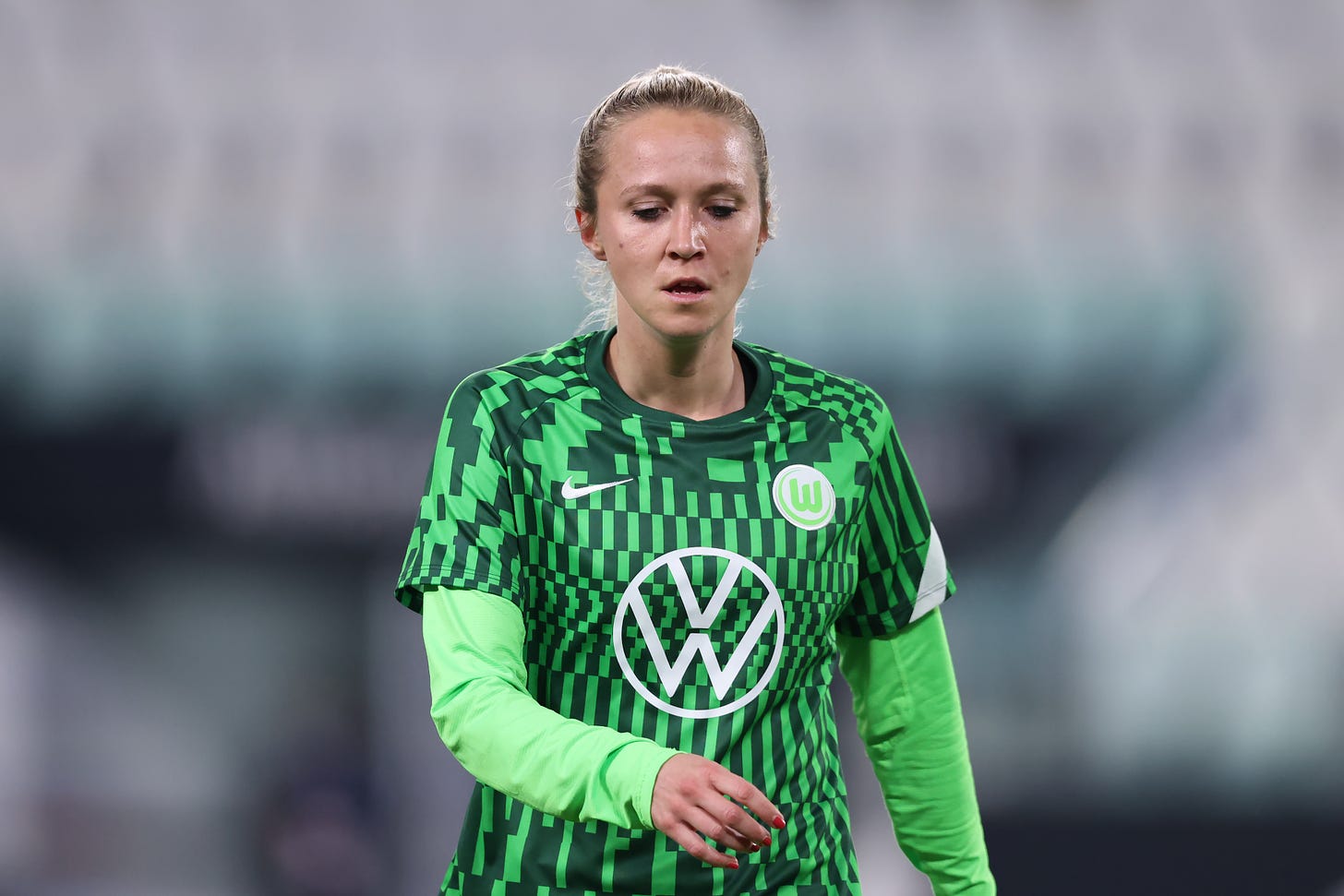The Big Interview: Turid Knaak
The former Germany international discusses a career which saw her win a European Cup, represent Arsenal, Atletico Madrid and Wolfsburg, plus the injury which almost ended her national team dream.

When Turid Knaak was just six months old, Germany won the second of eight European Championships during a dynasty that stretched from 1989 to 2013, interrupted only by Norway in 1993.
It wouldn’t be until 2017 when Germany were dethroned when Knaak was now 26, in the peak of her own professional career, and a tournament she could have been at herself had fate not intervened. More on that later.
Knaak’s career took her to the senior team eventually, plus a Bundesliga title, three German Cups, an Under 20 World Cup and the biggest domestic prize of all, the UEFA Women’s Cup, as it was back then.
She played for clubs such as former giants Duisburg, as well as Arsenal, Atlético Madrid and Wolfsburg, yet is probably not so well-known outside her home country, and now discusses her career in depth for the first time since retiring a year ago.
But there’s only one place to start. For a girl who grew up in the midst of utter German dominance, what exactly was it like growing up in a country as a young girl where women ruled the world?
Check out over 100 more unique stories in WFC’s Premium section, available for just £45 for 12 months, paid in one go, or a £6 a month rolling subscription.
All subscriptions come with a 7-day free trial to allow you to explore our full archive.
Plus, guarantee you everything that is to come over the next 12 months…
“A few years ago, I feel like you didn’t really have an insight into what other countries were doing because there was a lack of coverage,” says Knaak.
“I feel like every other country did their own things. Nobody really knew or had an insight into what everyone else was doing. I don’t really know why Germany was so much better. I don’t think we necessarily had the best conditions, but I don’t know what it was like in England back then for example. But obviously we were doing something right back then.”
Like many, Knaak started her career playing with boys and for various youth teams close to her home in Essen, including the youth team of Bundesliga side SGS Essen, who she would go on to represent professionally, before she joined FCR Duisburg as a 17-year-old.
Suddenly, she was thrown into a team filled with Germany legends, present and future. In 2009, when Knaak was still just 18, Duisburg was the team to be at, finishing runners-up in the Bundesliga, but winning the domestic cup and the European Cup, beating Frankfurt, Lyon and Zvezda Perm along the way.
Knaak was playing alongside the likes of Inka Grings, the top scorer in the European Cup that season, as well as Fatmire Bajramaj and Annike Krahn, plus future German stars in Alexandra Popp and Marina Hegering.
Duisburg were coached by Martina Voss-Tecklenburg and dismantled Zvezda 6-0 away from home in the first leg of the final, having beaten a Frankfurt side led by another Germany legend, Birgit Prinz, in attack.
Knaak came off the bench in both legs of the final, but she admits it didn’t feel like a “big thing” to be around such players and big games in the early stages of her career.
“We were very successful,” she recalls. “It was such a successful time. The environment wasn’t really professional, but we were still one of the best teams. That’s a sign of how women’s football has developed since then.
Keep reading with a 7-day free trial
Subscribe to Women's Football Chronicles to keep reading this post and get 7 days of free access to the full post archives.


